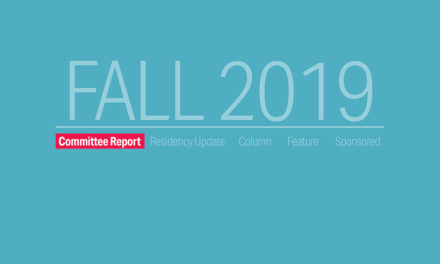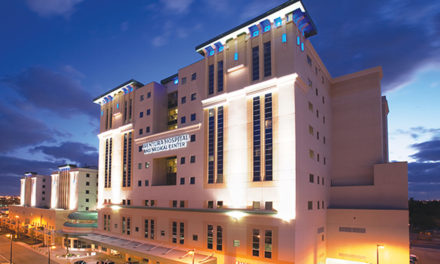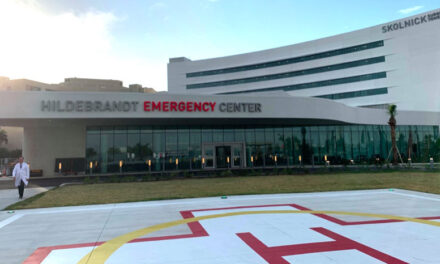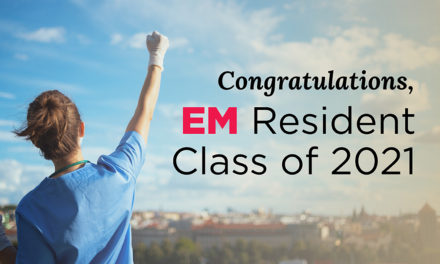Fall 2019: Memories of Lisa
They’re both probably gone now. They were the elderly parents of my 17-year-old patient. She was their love child. It was a time before Trauma Centers. Hospitals and physicians were not prepared to respond to the massive trauma she had endured.
I was in a hospital where sunburns and man-o-war stings were the usual fare. It was a cushy job sitting around all day reading or napping—until the next patient from Buffalo walked in looking like a recently boiled lobster. These were the early days of emergency medicine, and my experience was limited. Rescue knew not to bring difficult patients to us. We were on the wrong side of the tracks. Actually, the wrong side of the intracoastal. Coming to us meant coming over the intracoastal bridge, and risking having to stop for a passing sailboat. We were not the hospital of “choice” for anyone that was really sick or injured.
But this night had dealt me a sobering hand. It would test me and leave me with a memory tattoo. A case and a blessing I will never forget.
The exact time is fuzzy now, but because the man in the other car was drunk and stoned, it must have been after dinner hours. The call came in over the radio as a car wreck. It was so bad that the paramedics were going to bring us two of the six or seven patients involved. Their premise was that these were the “easy” patients, and we could probably handle them.
The other hospital was going to have its hands full. They did the right thing, but they were wrong about the “easy” part.
We readied the small five-bed ER. Getting ready meant calling the nursing supervisor to come stand by in case we needed her. There were only the two of us: the nurse and myself. Maybe there was a tech in the hospital that would also pitch in. That was it. Nothing else was required to get ready. Nothing else was available. We had no special trauma kits, and there were no other physicians in the hospital to come running and provide their special expertise… anesthesiology, trauma, surgery.
The ambulance pulled up with two patients: a loud, adult male and another patient that was quiet and smaller. Today, each would have arrived in a much larger rescue vehicle equipped with two paramedics in the back and enough gear and equipment to do heart surgery. Tonight, however, the primitive pickup and release EMS system that was serving our community was not the problem. It was the severe impact.
He was obnoxious, foul and in a lot of pain. I chose to see him first. There was blood on the lower sheet and his leg looked crooked. Before I crossed the 10 feet to his stretcher, I had decided I did not like him. He was yelling, cursing and admonishing us to do our job. He believed that was to focus on him and his injuries and treat him with the priority that his professional and social status demanded. He was an attorney. A BC. A big cheese.
His leg had snapped just above the ankle and there was bone protruding from the open wound. This was one of the nastiest-looking injuries I had seen since coming home from SEA. The wounds had been bigger there. The legs were not always attached. I did have some experience. Those young boy soldiers in Laos had been tougher. They were never drunk on arrival and they had been quieter. Many of them survived; just not with all their limbs.
Maybe this was easy. There really wasn’t much for me to do besides install the mandatory intravenous fluid line, give him something for pain, do the perfunctory exam to rule out other injuries and hide my disgust for him. Little did I know that that was going to become more difficult after I saw the other patient. I told the supervisor to see if she could find an orthopedic surgeon to come in and take him off my hands. I put his words on the chart in quotation marks: “I’m stoned on marijuana and drunk,” not knowing that would later impact his life in a significant way. The newspapers would lead with my testimony from his trial. His high profile attorneys would attack me on the witness stand, but the quotation marks would be too hard to erase. He would be found guilty of manslaughter.
One down. Let me see number two. She was blonde, pretty, and I would guess she was in her high school years. She was barely conscious. Her injuries were not as visible as his, but her blood pressure of 70 hinted that she could be in trouble. Her face was uninjured, but her belly was distended and her chest crackled when I touched it. She was pale. She was trying to die in front of me.
Okay, I had dealt with this in my war years. Shock. I needed to get some blood in her, and get the on-call surgeon to come quickly. In those days, that was always a challenge. No one wanted to come out in the middle of the night and take care of a trauma patient. For the sake of a little more sleep, there was always a request for more blood tests, just to make sure I wasn’t overreacting. There was an assumption that I did not have much experience with these things, and the hospital rules were loose. As emergency medicine evolved over the next 20 years, that would change. We would gain control of the hammer, and if we said “come to the hospital now,” the debate ended.
This night was blessed initially. The surgeon called back quickly and maybe, sensing the fear in my voice, he said he would come to the hospital. I would start getting some more blood typed and cross-matched and get some x-rays. Number one was still yelling. I stuck close to number two.
The big hospital on the other side of the intracoastal had received all three of the other girls. They were all dead now. Their car had been hit with tremendous force as it drove through the green-lighted intersection. Number one had not stopped.
While waiting for the x-ray tech to get warmed up, a call came into the ER. For the sake of anonymity, we’ll call him Dr. Z: a plastic surgeon, Chief of Staff at the really big hospital across town, and president of the county Medical Society. He was high up on the pecking order. He told me that his daughter had been involved in a car accident and wanted to know if she was in our ER. Her name was Lisa. She was a young ballerina. His princess. We didn’t know the name of number two, so I put him on hold and went to her bedside.
“Is your name Lisa?”
“Yes,” was one of the few words she had been able to get out.
I told Dr. Z, and he was on his way.
In x-ray, Lisa kept trying to die. Two units of blood already and her pressure was still low. She was unresponsive. I was hoping the orthopedist was in the ER, dealing with number one. I was watching from behind the lead shield when Dr. Z rushed in. He looked at the girl on the x-ray table and said, “that’s not Lisa.” There had been two Lisas in the car.
I suddenly felt nauseated. This was the hardest part of my job. Could I avoid the task of telling him what I knew?
I didn’t.
He was gone in a second.
The OR team started to arrive, and the surgeon was in the hospital. We could take Lisa upstairs. Number one was being prepped for surgery on his leg. He had stopped yelling. Things were quieting down. It was after midnight. The nurse called to tell me that Lisa’s parents had arrived, and I should come update them. As I approached, I was struck by their age: older, and not the parents of a teenager that I expected. They were warm, gracious and kind as I told them about their daughter. I painted a cautious picture but allowed for hope. I couldn’t leave them, so we talked. Lisa was their second daughter, born later in their marriage. They had lost their first daughter to cancer.
Surgery dragged on. I became the line of communication between the parents and the OR. Back and forth. Nothing good and nothing bad. Eventually, Lisa was taken to the recovery room still alive. The parents began the wait, and I went to bed.
In those days when someone went into cardiac arrest in the hospital, the operator yelled out “Code Blue” over the hospital intercom. Everyone in the hospital could hear it. The operator would then call me and tell me which room. This time it was in the surgery ICU. It was Lisa. I ran.
She was in full cardiopulmonary arrest. Her heart only had a little electrical activity and she was not breathing. Cardiac arrest from trauma is not good. Rarely is there anything that can be done to reverse course. I tried. More blood, more air, but Lisa would not survive the greatness of her malady; severe intra-abdominal and intra-thoracic trauma. She was gone.
Now, for the second time that evening, I felt nauseated. I needed to go to the surgical waiting room. I knew her parents would have heard the “Code Blue.” I knew that they probably knew what that meant but were not sure of the most common outcome. In those days, waiting rooms were not as structured and strategically placed as they are today. In this small hospital, it was a small room at the end of a very long hallway that lead directly from the door of the ICU. Everything was quiet. As I walked that hallway, I could see Lisa’s mother standing in the doorway of the waiting room. The walk seemed longer than the hallway. I could see her, and she could see me. We both waited as I walked.
My approach to these conversations had always been to get it out clearly, so the answer to their question was immediate and not confusing. Within a few feet of Lisa’s mother and now her father, I said, “Lisa is gone.” I could not have said more. I could barely speak. Somehow, I had become related to these folks. We had transcended our social or economic or ethnic boundaries and we were connected. It didn’t always happen like that.
As I was struggling to put composure in place—composure that was required but didn’t make sense—Lisa’s mother reached out with her hand and touched my arm. She told me that she understood how hard my job was and was sorry for my pain. I was stunned. They had just lost the last love of their lives, the dream of seeing grandchildren one day, joyful holidays and so much more… and she still had room for me in her heart.
I didn’t know it at the time, but I would experience this again a number of times in my career. It wasn’t guaranteed, but it would happen. Medicine has given me far more than I could have ever given it. I am truly blessed. ■


 This article originally appeared in EMpulse Fall 2019. View the
This article originally appeared in EMpulse Fall 2019. View the 


